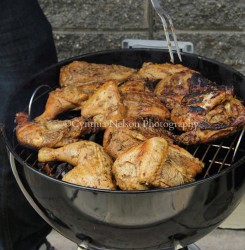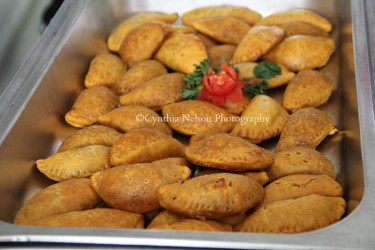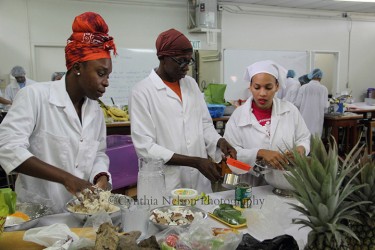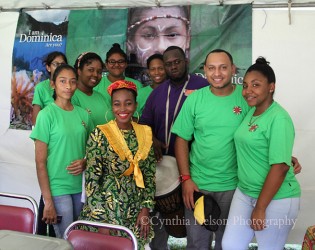Hi Everyone, There is hope amidst the maddening preference for foreign and imported food. There is hope that some of our cooking traditions and dishes will not be altogether lost. A course – Development of Caribbean Cuisine – offered by the University of the West Indies, St Augustine, Trinidad and Tobago, is making small but powerful strides to introduce students to local and regional ingredients, cooking traditions and by extension the varied multicultural cuisine of the Caribbean.
I was invited by the university to share with the students studying nutrition and dietetics, 


One of the exciting things about this course is that it is not all talk and lecture but there is a large practical component that encourages students to really immerse themselves in the food culture and traditions of local and regional food. For example, some of the activities include bringing items to class – fruits, vegetables, spices etc – that are “new” or “strange” to them. This show and tell session in the class provides opportunities for research and discovering many things about the ingredients, from nutritional value to how the ingredients are grown and used. Students visit fresh markets to explore and to assess food safety issues. They also do video presentations on street food culture while studying issues related to sanitation and the safe handling of food. As you can tell, it is the perfect combination of the fun and serious side of food and its related issues of laws and regulations.

The component of the course, which I was invited to witness, was the cooking activity. This is where each group of students had to choose a Caribbean country of interest and research and prepare traditional dishes of said country. They had the freedom to make general dishes or to make the national dish/es, foods associated with holidays or festivals. It was an opportunity to prepare “a taste” of that particular country and present it as if you were introducing guests to the tastes and flavours of the chosen country. In presenting their finished dishes, students had to include information about the countries and the information ranged from language to songs, dances, cultural practices, folklore, and national dress, the works I tell you. Their instruction was, “You are selling the particular Caribbean island.”
The brain, and limitless energy behind this course, is Assistant Lecturer, Nequesha Dalrymple. The course started 6 years ago but it was only theory based until Nequesha joined the staff in the Faculty of Agriculture, Department of Agricultural Economics & Extension. Having passed through the programme herself, Nequesha used her friends and her love of food and travelling to develop the course into a practical one. Through the various activities – show and tell, study of street food, the cooking activity and the creation of a novelty food item – she thought it would be a great way to introduce students to the food and food ways of the Caribbean. While the students over the years have responded favourably to the course, their one complaint being that it is a lot of work (an expected response), Nequesha herself enjoys the course. She would have to, given the amount of work needed to execute the one activity I witnessed – cooking and showcasing of various islands.


Six groups participated in the session I attended and the countries cuisines featured were Antigua & Barbuda, Barbados, Dominica, Grenada, Jamaica, Puerto Rico and St Vincent and the Grenadines. It is important to note that none of the students were from any of the countries featured. They were all from Trinidad and Tobago. As I surveyed the offerings and sampled the food one thing was clear, and that is how similar the ingredients are across the region, what makes the difference is the application of various cooking techniques and the flavourings (spices and herbs) that we use to mark each as our own. The use of cornmeal, salt fish and ground provision was prevalent. There were various forms of fish cakes from Dominica and Barbados – similar ingredients, different texture when cooked. There was the Fungi from Antigua and Barbados’ cou-cou. Dominica and St Vincent each had Callaloo soup. Ducana/Doucana from Antigua and St Vincent, and Barbados’ Conkies – same pudding different name and spelling. Then there was St Vincent’s take on fried salt fish versus that of Antigua’s.
The effort put in by most of the students was remarkable. The lengths some of them went to by acquiring national dresses, flags and artifacts, and in one case, sewing their own aprons and bandanas, is to be loudly praised and applauded. As I said in the beginning, there is hope, all is not lost.
To view a photo album of the day’s event visit my blog, www.tasteslikehome.org
Cynthia






